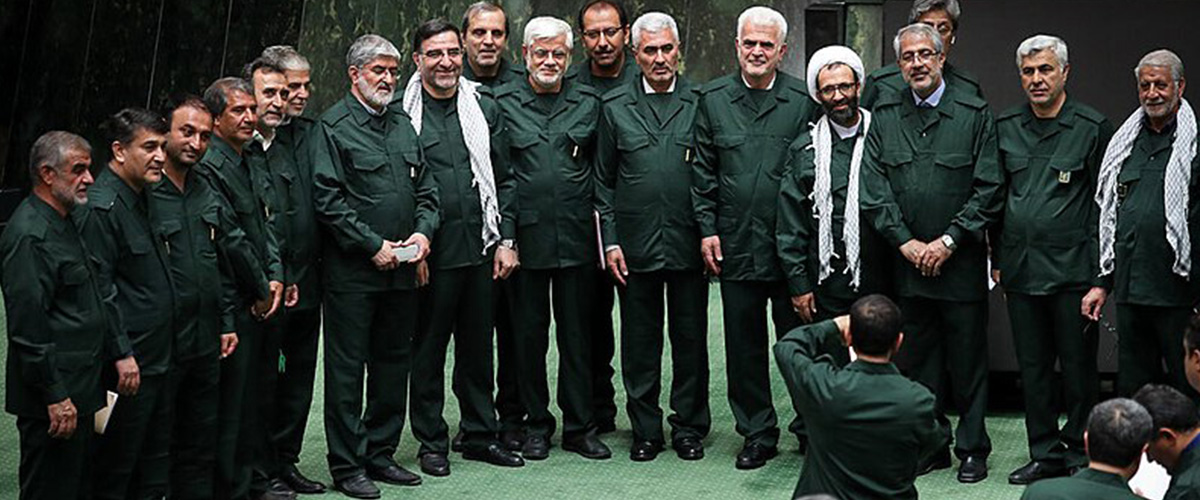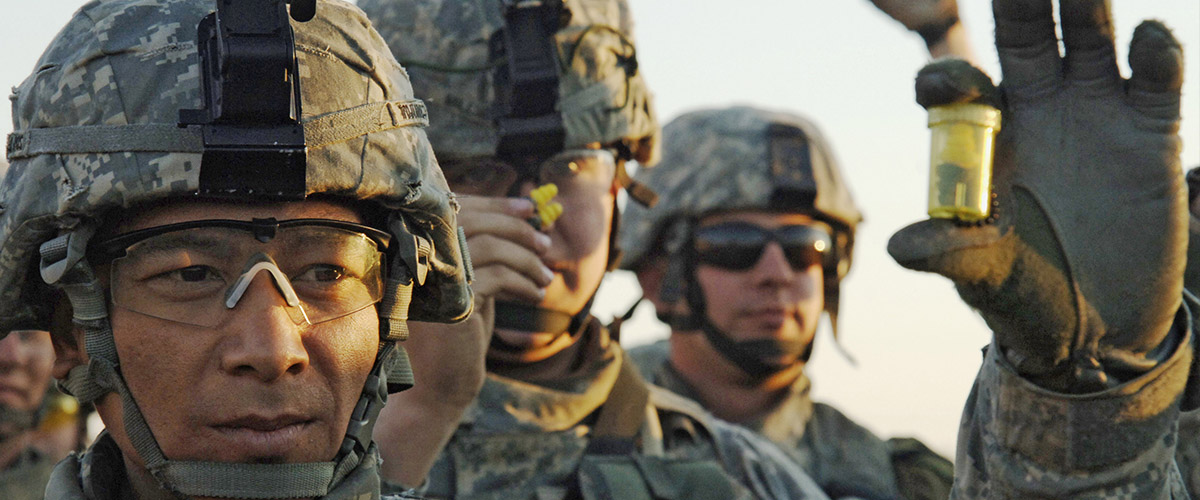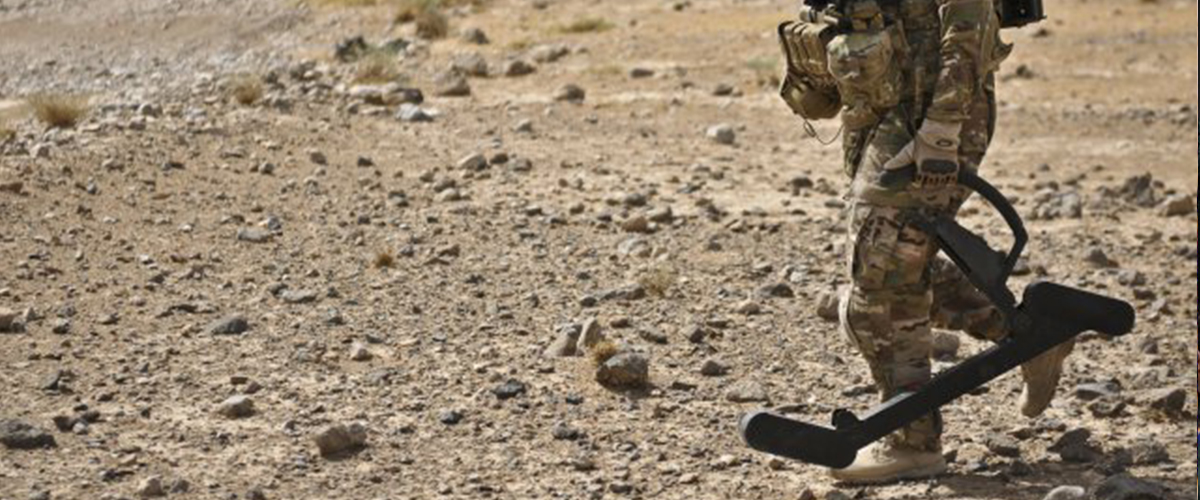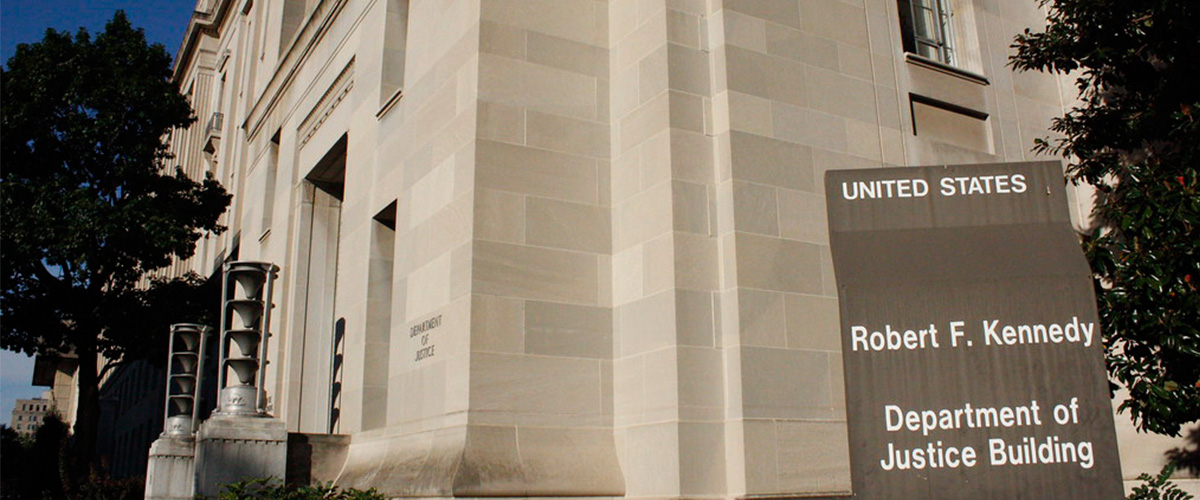
Designation of Islamic Revolutionary Guard Corps as Terrorists
In April 2019, the United States officially declared the Islamic Revolutionary Guard Corps (IRGC) as a foreign terrorist organization. The controversial move raises concerns even among some in the Trump Administration about potential risks to U.S. troops in the Middle East.
In a statement, President Trump said that the step “recognizes the reality that Iran is not only a State Sponsor of Terrorism but that the IRGC participates in, finances, and promotes terrorism as a tool of statecraft. Further, the president described the IRGC as, “the Iranian government’s primary means of directing and implementing its global terrorist campaign.”
This is the first time that the U.S. has ever labeled a part of another country’s government a terrorist organization.
The IRGC is Iran’s most powerful military institution. In addition, it holds deep influence over domestic politics and the economy. Its interests extend into construction, telecommunication, and the auto and energy industries.
What is the IRGC and how is it a terrorist organization?
First established in 1979, the IRGC was established to protect the new republic and enforce its ideological tenets. The Revolutionary Guard soon became an important part in helping fight the Iran-Iraq War. The IRGC is separate from Iran’s conventional armed forces. It has its own air, land and naval units, as well as its own network of domestic paramilitaries. Iranian President Hassan Rouhani has tried, unsuccessfully, to limit the organization’s involvement in the country’s economy.
The IRGC has earned its designation as a terrorist organization from the U.S. government because it has been used to “sow violent discord around the world for decades.”
The Washington Post lists the following examples of terrorist activities:
- Providing roadside bombs to Iraqi militants fighting U.S. forces.
- Ongoing support of insurgents in Afghanistan, including Iranian manufactured weapons.
- Assisting Syrian authorities in repressing revolts in 2011 and ongoing involvement in the civil war.
- Attempts to assassinate a Saudi ambassador in Washington.
- Support of Yemen rebels.
- Bombings across the globe.
White House officials say that terrorism is a central tenet of the Iranian regime.
What does the IRGC’s Terrorist designation mean?
Sanctions. Sanctions are limitations that one country or a coalition of countries place on another country. Sanctions can be asset freezes or trade sanctions that limit the number of goods that can be traded.
In the case of the IRGC, economic and travel sanctions mean that any group or individual that does business with the IRGC could face criminal prosecution for providing material that could support a terrorist organization.
U.S. Secretary of State Mike Pompeo told reporters that these sanctions will deprive Iran the “financial means to spread misery and death around the world.” In addition, he warned that businesses with a presence in Iran or engaged with its companies will have to ensure that they are not violating U.S. sanctions.
A senior policy adviser to Pompeo said that the IRGC controls up to half of Iran’s economy.
“Businesses and banks around the world now have a clear duty to ensure that companies with which they conduct transaction are not connected to the IRGC in any material way,” Pompeo said.
What was Iran’s response?
Following the designation from the U.S., Iran’s Supreme National Security Council responded by declaring the U.S. a state sponsor of terrorism. In addition, the Council said that American troops operating in the region were terrorist groups.
“The Islamic Republic of Iran declares itself in reciprocity against the unlawful and unreasonable action of the United States today, considering the United States as a terrorist sponsored government and the Central Command of the United States, CENTCOM, and all its affiliated forces as terrorist groups,” the National Security Council of the Islamic Republic of Iran said in a statement, IRNA reported.
Concerns about U.S. Troops
The move was not without controversy within the White House. In fact, a 2018 CNN report stated that the Director of National Intelligence Dan Coats cautioned that the administration that designating the IRGC a terrorist organization could pose dangers to U.S. forces in the area.
White House officials say that the designation was an interagency decision and that all opinions were weighed.
“Whenever we and other nations call out and expose the regime for what it is it behaves like a mafia organization its threats,” said Brian Hook, a senior policy advisor to Pompeo. “We will not be deterred by their threats.”
Hook also said that all interested parties are prepared for whatever the Iranian regime has in store.
Pentagon spokeswoman Cmdr. Rebecca Rebarich said the Department of Defense is ready to implement the President and Secretary of State’s decision.
“As always, DOD has taken prudent measures to ensure the safety of our forces around the world and maintain our readiness to carry out our missions,” Rebarich said.
Rising Tensions between the U.S. and Iran
While Iran and the United States have been at odds since the late 1970s, tensions have escalated even more since the U.S. pulled out from the nuclear agreement with Iran last year.
Concerns that the tension will lead up to a military conflict grew after the U.S. ordered an increase in U.S. military assets in the Middle East and the Persian Gulf reasoning the need with imminent threats from Iran. Further, the U.S. ordered the evacuation of personnel from its Embassy in Iraq.
While both sides have said that they do not want war, each continues to resist diplomacy and finding a compromise under current conditions.
John Bolton, the United States’ top national security aid, slammed the Obama Administration in 2015 for reaching a diplomatic compromise with Iran. In an Op-ed for the New York Times, Bolton wrote, “Iran will not negotiate away its nuclear program.” He continued, “the inconvenient truth is that only military action … can accomplish what is required.”
President Donald Trump tweeted on May 20 that reports that the U.S. was trying to set up negotiation talks with Iran were false. He added that the sanctions placed on the country by the U.S. were leading to an economic collapse in the country. In addition, he said, “If Iran wants to fight, that will be the official end of Iran.”
Iran’s rhetoric has been similar to the U.S. The country’s leaders refuse to bow down to American sanctions. Iranian Foreign Minister Mohammad Javad Zarif dismissed Trump as making “genocidal taunts” and warned the president not to threaten Iran.
Will the U.S. and Iran go to war?
As of now, it’s difficult to say if the countries will go to war. The United Nations, however, has expressed its “concern about the rising rhetoric” between the two nations. The U.N. asked all parties to lower the rhetoric and lower the threshold of action as well.
However, experts warn that the two countries can go to war without the risk of human lives. For example, the US could launch cyber attacks on Iran’s infrastructure and power grid. This is a method the Obama Administration used to bring down part of Iran’s nuclear program. Equally, Iran has cyber capabilities of its own. Therefore, it would not necessarily take a full-on military battle for tensions to get bad enough between the US and Iran.
We are Veterans Helping Veterans
The Veteran Legal Assistance Program is here to support veterans and active duty soldiers. In addition to offering valuable information, we are here to amplify the voices of Veterans and their families. If you are in need of assistance, contact the Veterans Legal Assistance Program and let us know how we can help.
We’ve got your six.



